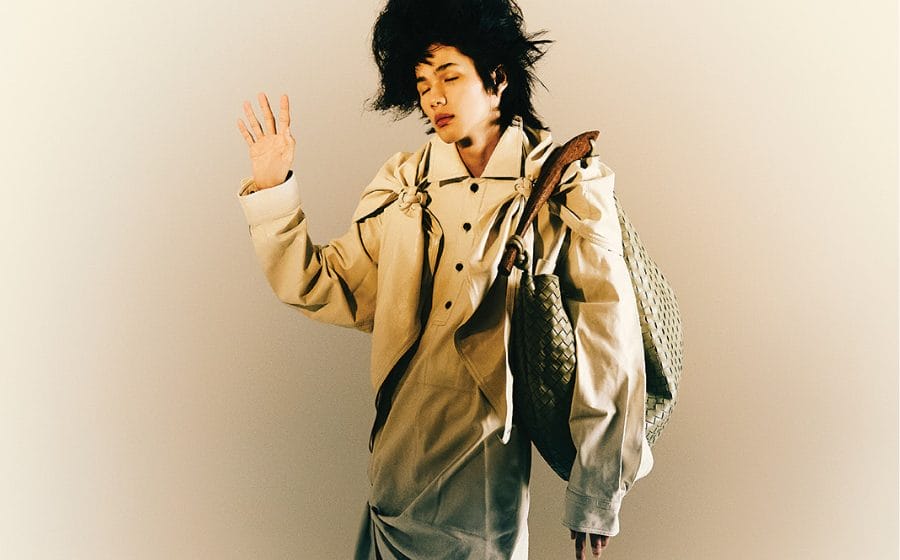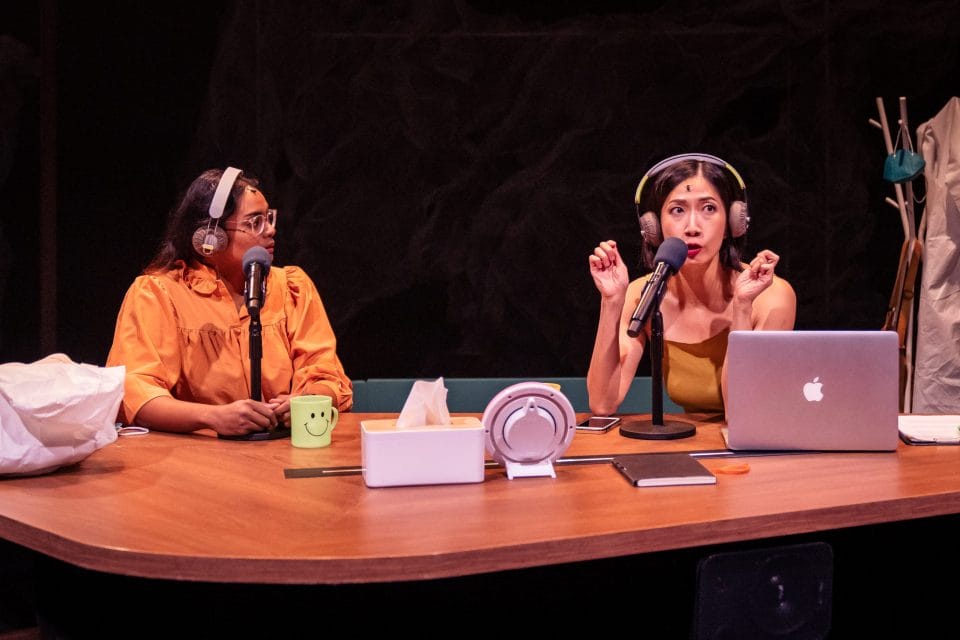 It’s not often that you come across plays that criticise media via the medium of radio. For something purely audio-driven and more often than not only accessible via the limited time of commute, the role it plays in our tech-heavy lifestyles is something worth questioning. But in its scarcity is the ability to distil what information is considered significant with ease — in the short periods that chart-topping tracks are not playing, listeners understand what truly matters. Or is that really the point of radio anyway?
It’s not often that you come across plays that criticise media via the medium of radio. For something purely audio-driven and more often than not only accessible via the limited time of commute, the role it plays in our tech-heavy lifestyles is something worth questioning. But in its scarcity is the ability to distil what information is considered significant with ease — in the short periods that chart-topping tracks are not playing, listeners understand what truly matters. Or is that really the point of radio anyway?
For Jo Tan, the subject of radio is quite complex. She is known for her lead role in the movie Tiong Bahru Social Club and her recent rise as the newest Dim Sum Dolly, the actress, producer and scriptwriter of the new play Happy Place wants more people to reconsider the immense dichotomy that can exist just in the single (but vast) plane of online expression, employing the use of satire to explore the appetite of the masses for good news, its stomach for bad news, and the necessity of emollient in-betweens to inspire hope and change.
We speak to Jo to understand more about how she drew on her experience as an ex-DJ for this work, what it means to be both the scriptwriter and actor in a play, and what she has uncovered about the tendencies of media in times of global crises — cue memories from the pandemic, but with lots of clever humour and emotional rollercoasters well worth the ride.
Hi! Can you describe what you do for a living in 10 words or less?
I write-act-host-sing & Dim-Sum-Dolly
Why did you choose to write a play about media?
I think because I’ve experienced various sides of it – other than the hyphenated words above, I’ve been a journalist, a PR exec, and of course, a radio DJ for a very brief seven months – I saw different sides to the media, how it gave people information about what was happening in the world, and also provide entertainment as a lovely numbing agent when the news got too much.
It all came to a head when I was hyping people up with extremely light, fun news in the morning, rehearsing for intense plays like Amanda Chong’s #WomenSupportingWomen and Session Zero with Checkpoint Theatre at night, and all the while trying to ignore the fact that I could do nothing about military coups and forest fires happening in the world. I wondered what the balance was between entertaining people and confronting them with stark truths, and this play was born.
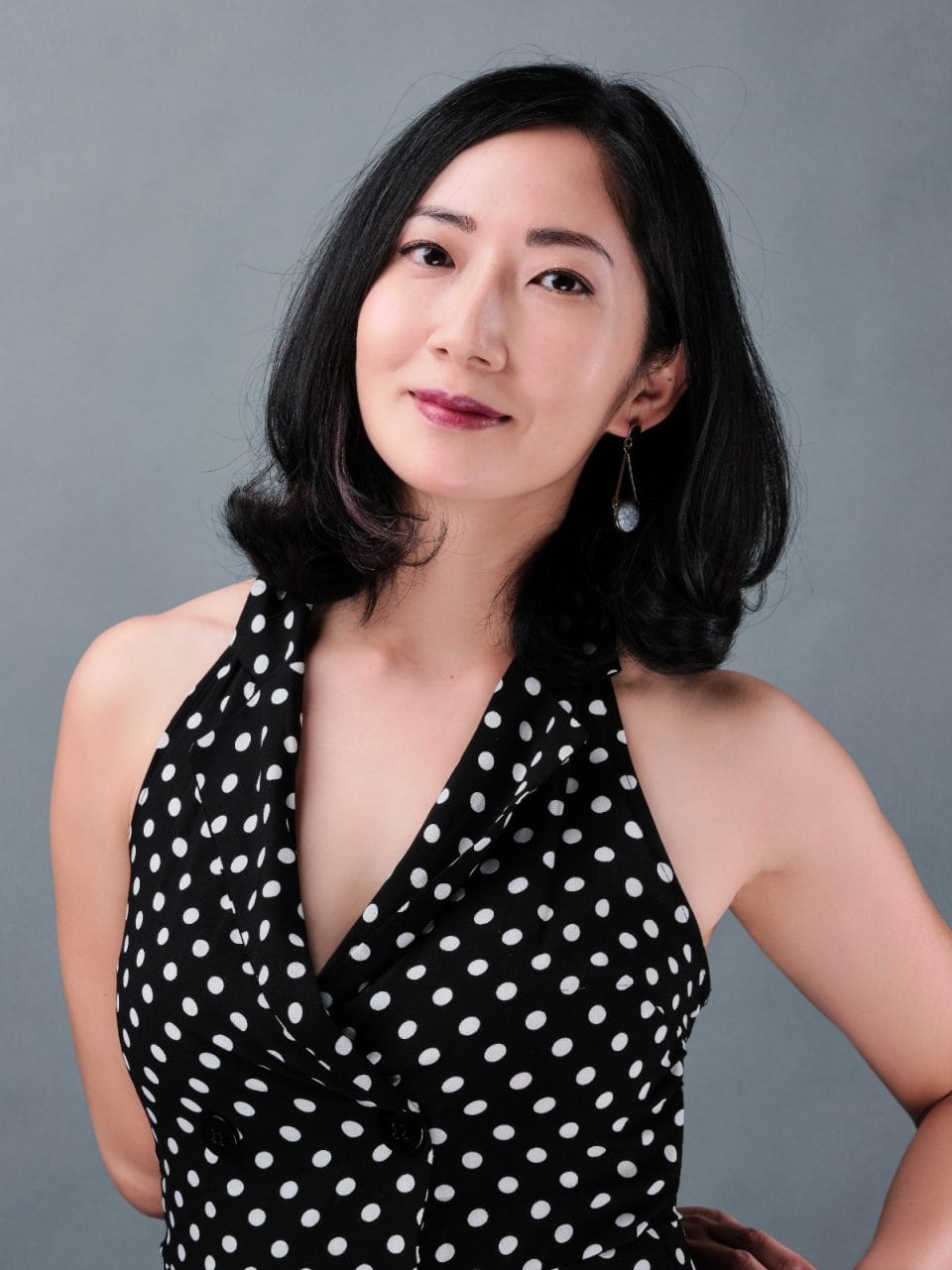 What are the pros and cons (if any) of using theatre as a medium to talk about media?
What are the pros and cons (if any) of using theatre as a medium to talk about media?
We usually experience media in terms of edited and curated images and sounds. So to see something live and unfiltered and in a space as up close as the Black Box of Gateway Theatre, you really get the sense of looking behind the scenes of the media game.
Of course, the fact that you can’t edit anything means we have to rehearse and design and structure everything like mad. =)
Was there a particular reason for being the producer, writer and lead actor in this piece? Does it change how you approach the script as the actor?
Honestly, I usually write and act in my productions, and it’s worked out pretty well so far, such as in King and Session Zero, which were highly acclaimed and are coming back later this year. =)
If there’s a story I’m passionate enough to tell, and since I’m an actor anyway, it’s more streamlined (and more cost-efficient!) if I tell the story in my voice. I have to say this is my first time taking on triple-duty writing, acting as well as producing, at least for something of this length and scale. Worrying about finding money and making sure everybody felt taken care of was something that took up much more mental space than I would have liked to save for writing and acting. But I’m glad I was able to help realise the visions of my fellow designers and creatives!
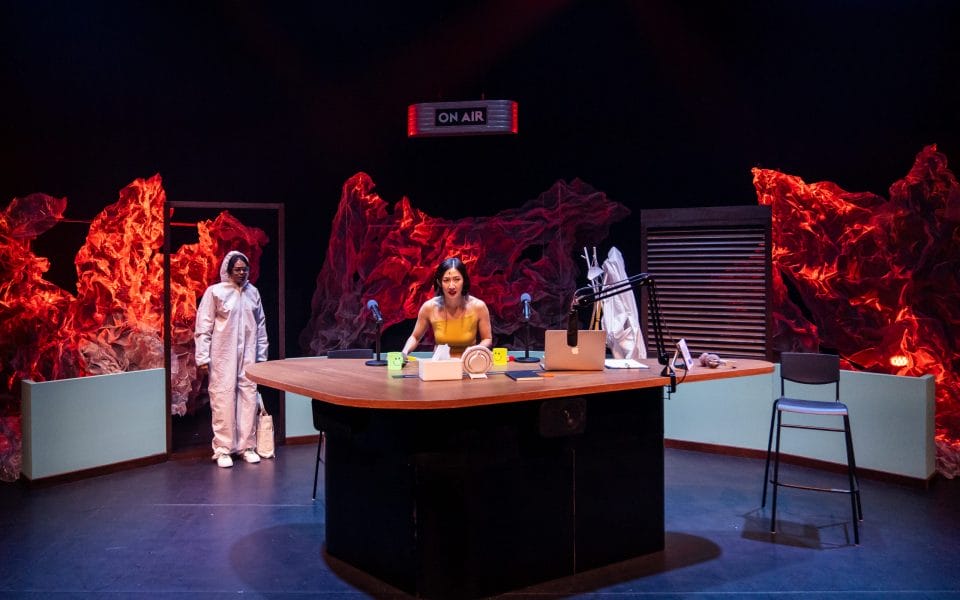 What was the most memorable part about working on Happy Place?
What was the most memorable part about working on Happy Place?
Hearing from the director Tze Chien that his vision for the piece had evolved and that the character of Poe (played by Jamil Schulze) was going to have much, much, much more physical involvement than how he was written – as the missing radio partner who didn’t show up to work one day. All our jaws dropped when hearing what Tze Chien had in mind (which Jamil executed so wonderfully).
Surprises like that are why Tze Chien is one of my favourite person to work with.
What was one of the biggest challenges you faced while working on Happy Place?
Definitely wearing the three hats of producing-writing-acting. Sartorially, I think I’m better used to wearing two hats.
Did this particular creative process change anything about your understanding of the role media plays in our lives?
I think I really came to value the different faces of media and the ways it can be used. It’s okay to give people a place to escape to, and sometimes it’s useful to shock people with the truth. It’s a balance that we all have to find and acknowledge responsibly for – what you put out there in the world, whether via a polished, edited TV show or an impromptu Tiktok video – all that has an impact on the world.
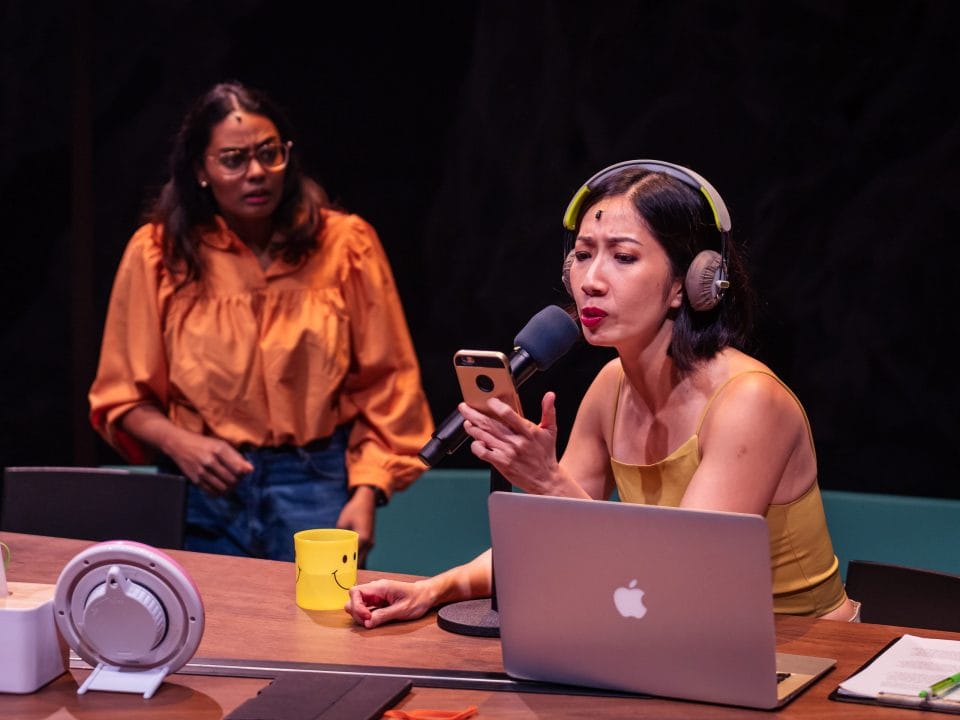 What did you learn about yourself as a theatre practitioner?
What did you learn about yourself as a theatre practitioner?
I think I’ve learnt more about how I need to write, develop and rehearse for a play. My past scripts that were produced have either been performed solo by myself, meaning I could continually tweak and change it, or two-handers with very, very close friends, people who would kindly accommodate my constant changes in the rehearsal process.
Happy Place is a three-hander with two other actors I greatly respect but have not worked extensively with. I realised I had to be answerable to everyone much earlier by locking down the lines for them to memorise and rehearse on time since, usually, that’s how it would be done, as playwrights aren’t usually in the room. For future shows with a cast larger than myself, I’d like to factor in more time, budget and resources to finesse the script before rehearsals and give everybody lots of time to settle in. =)
What is one thing you hope for audiences to take away after watching the play?
Happy Place is just another piece of the media – it has certain messages in it of thinking about everybody’s role as media-makers in the world, but it’s also entertainment. Whether people go away thinking about their responsibilities or just walk away entertained, that’s good enough for me!
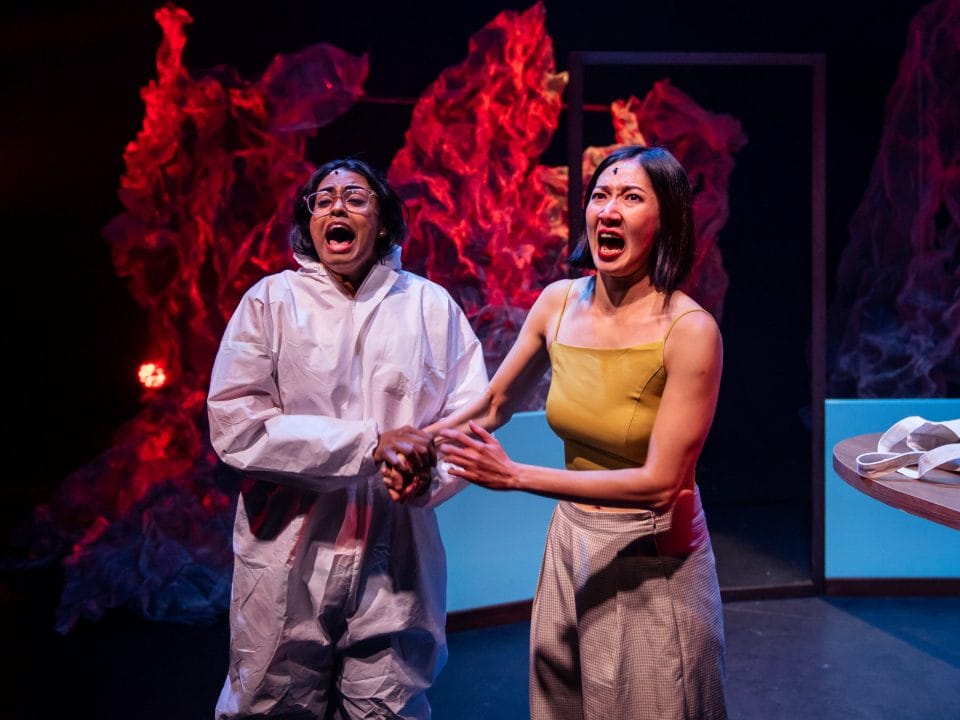 Last but not least, what song has been part of your heavy rotation of late?
Last but not least, what song has been part of your heavy rotation of late?
They seem to keep playing Dont’cha by the Pussycat Dolls at the gym.
Once you’re done with this story, catch up with our May 2023 issue here.


